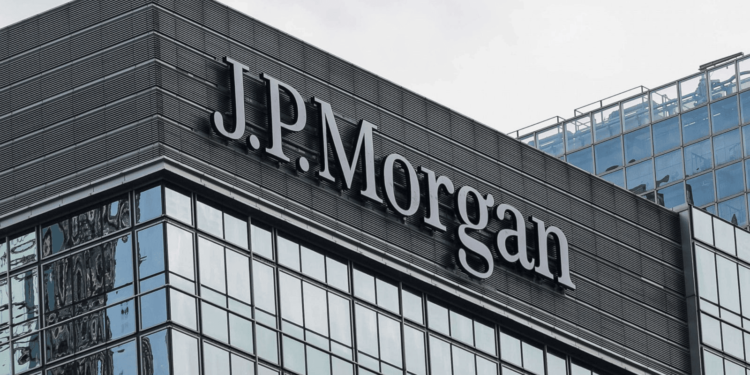Leading U.S. investment bank J.P. Morgan has advised investors to unwind their long positions in Nigerian Open Market Operation (OMO) bills, warning that mounting global risks—led by sliding oil prices and renewed trade tensions—could expose Nigeria to deeper macroeconomic vulnerabilities.
In a research note dated April 9, 2025, titled “Frontier Local Markets Strategy: Reducing Risk Further” and seen by Nairametrics, the bank said Brent crude’s fall toward sub-$60 per barrel—below Nigeria’s breakeven price—warrants a reassessment of the country’s fixed-income investment profile. The shift marks a stark reversal from J.P. Morgan’s previously bullish stance on Nigerian carry trades, once favored for their attractive yields and perceived currency stability.
Global Shocks Hit Nigeria’s Fragile Recovery
The bank cited a deteriorating global macroeconomic environment, including former U.S. President Donald Trump’s resurgence as a leading presidential candidate and his aggressive push for new global tariffs, as major downside risks for emerging and frontier markets like Nigeria.
While the Central Bank of Nigeria (CBN) has attempted to reassure markets—projecting a rise in external reserves and reporting a $6.83 billion balance of payment surplus in 2024—J.P. Morgan warns that these gains could quickly unravel if crude oil prices remain below the country’s fiscal breakeven level.
“A sustained drop in oil prices below $60 per barrel could plunge Nigeria’s current account back into deficit, placing additional strain on the naira and intensifying the demand for dollar-denominated assets,” the note stated.
J.P. Morgan had previously warned that under such conditions, the USD/NGN exchange rate could exceed N1,700/$1, well above current levels near N1,500/$1, underscoring the naira’s vulnerability to foreign inflow dynamics.
CBN Ramps Up Currency Defenses
Acknowledging the central bank’s efforts to stabilize the FX market, the bank noted that the naira’s 3.6% depreciation in recent weeks has been moderate by emerging market standards. The CBN reportedly sold over $550 million in March, and Nairametrics estimates total interventions may have crossed $1 billion this month alone.
Despite this, J.P. Morgan cautioned that capital flight risks are mounting, with potential portfolio outflows estimated at up to $10 billion, much of it from foreign investors wary of deepening economic risks.
“The FX market remains heavily reliant on central bank intervention. Any disruption to oil-driven inflows could trigger panic in both currency and bond markets,” the note warned.
OMO, T-Bills Market Showing Stress Signals
In the domestic market, signs of investor unease are also surfacing. Liquidity in the OMO and T-bills segments has thinned, with yields rising by as much as 300 basis points in recent weeks. This reflects inflationary pressures, declining foreign interest, and concerns over oil revenues.
To prevent disorderly price swings, the CBN has reportedly stepped up its involvement—injecting liquidity and directly participating in auctions to meet bid-cover ratios and stabilize the short end of the yield curve.
Implications for Nigeria’s Reform Agenda
J.P. Morgan’s warning strikes at the heart of Nigeria’s delicate economic balancing act in 2025. The government had earned praise in 2024 for bold reforms, including the unification of exchange rates and the removal of fuel subsidies—moves that had buoyed investor confidence and earned global market approval.
However, the double threat of lower oil prices and global geopolitical uncertainty now threatens to undermine those gains.
“While Nigeria may escape a technical recession, the fiscal and external accounts face serious pressure if oil revenues falter,” J.P. Morgan noted.
The government had banked on oil exports and multilateral support to sustain FX inflows. But with no clear alternative revenue channels and oil prices underperforming, experts warn that Nigeria’s reform momentum could be tested.
A Cautious Optimism for the Medium Term
Despite its near-term caution, J.P. Morgan maintains a medium-term positive outlook on Nigeria. The bank expressed confidence that the country would stay the course on reforms—particularly allowing market-driven exchange rates and increasing reliance on domestic revenue mobilization through the now-commercialized Nigerian National Petroleum Company Limited (NNPC).
Nonetheless, this recovery path remains contingent on stronger oil prices, macroeconomic discipline, and Nigeria’s ability to weather external shocks in an increasingly volatile global economy.
As Nigeria stands at a critical economic crossroads, investors and policymakers alike will be watching closely for how the country navigates these headwinds—balancing reform resilience with the urgent need to preserve currency and fiscal stability.

















